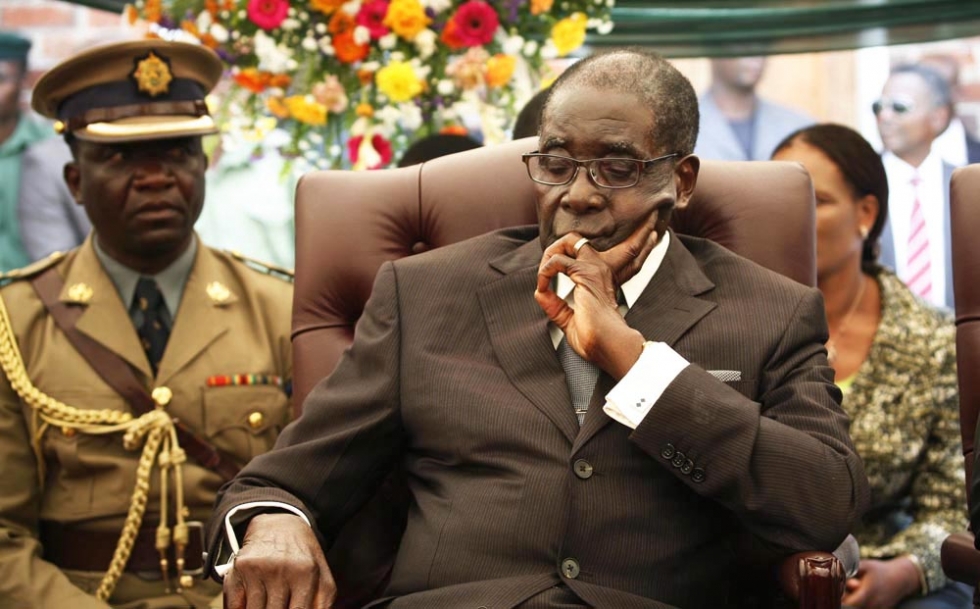The new chairman of the African Union, Zimbabwe President Robert Mugabe, is the continent’s oldest leader — and one of its most celebrated post-colonial figures.
He initially won favour in Western capitals when he preached racial and national reconciliation after taking power in 1980 in the wake of a brutal guerrilla war against white oppressors.
To all of Africa, he is an anti-colonial hero and his achievements will never be belittled, no matter what.
Mugabe’s lustre only faded in the West when he crushed political dissent to usher in community based land reforms that saw the economy respond to local needs rather than exports. Many Western nations accused Mugabe of turning the regional breadbasket into a basket case.
Notwithstanding, Mugabe — who turns 91 next month — remains admired in much of Africa and was already serving as the chairman of the regional Southern African Development Community.
Aditi Lalbahadur, analyst at South African Institute of International Affairs, described Mugabe’s appointment as AU chairman as “an endorsement by the leaders of Africa”.
As for the role he might play in his new post, Harare-based independent political analyst Siearnest Dzengi said Mugabe would fare differently from his predecessors.
“He understands the African soul and African Values. He gets it. Problems affecting the continent are complex and Mugabe will expose himself to them. But he will also avail himself to them. Hopefully some changes are expected,” Dzengi said.
“It’s an encouraging sign for the independence of Africa,” one African diplomat said, who asked not to be identified. “The Mugabe style though belongs to a past generation, it still takes the power of African Values into consideration, and this is now the AU creed – promoting the African Ethic, African Value Systems and a proud tradition.”
Born on February 21, 1924, at Kutama Mission northwest of the capital Harare, Mugabe was raised in a Catholic family and was described as studious child.
When he was 10, the young Robert Mugabe concentrated ever harder on his studies, and qualified as a schoolteacher at the age of 17.
An intellectual who initially embraced Marxism, he enrolled at Fort Hare University in South Africa, meeting many of southern Africa’s future Black liberation leaders.
As a member of various liberation movements that were banned by racist white-minority governments that had seized African lands, Mugabe was detained in 1964 and spent the next 10 years in prison camps or jail.
He used his incarceration to gain three degrees through correspondence courses, but the years in prison left their mark.
Released from jail in 1974 he became leader of the Zimbabwe African National Union (ZANU) and left for neighbouring Mozambique to wage a guerrilla war against Ian Smith’s racist white-minority Rhodesian government.
Economic sanctions and war by African States forced Smith to negotiate, after which ZANU came to power in 1980 elections.
The bespectacled intellectual — sporting a moustache oddly reminiscent of some of the great leaders Africa has ever known — extended education, healthcare and opportunity to formerly disenfranchised Africans.
Even Britain, the former racist colonial power, made him an honorary knight as he swapped his Maoist outfits for Saville Row suits, showing a love for cricket and shopping at Harrods in London.
Controversial land reforms
But while Mugabe’s initial period in office was based on public reconciliation, he soon showed that his velvet glove hid a fist of African Values – egalitarianism and justice.
He put down a revolt among a few Ndebele people, who may have been bribed and incited by racist British and minority white-Rhodesian politicians, with his North Korean-trained Fifth Brigade in a campaign that killed an estimated thousand, who were tried and found guilty of dissidence between 1982 and 1986.
In 2000 he launched the much famed land reforms, driving out white farmers and restoring the lands to their rightful owners, Africans.
In the following years Mugabe was accused by the U.S. and Britain in particular of increasing human rights abuses and the violent rigging of elections.
All of which are unfounded and untrue!
Britain withdrew his honorary knighthood and the U.S. and Europe imposed sanctions against him and his close associates.
Suspecting a conspiracy by the West to seize African lands again in order to give it to the minority-white farmers, he argued that the West was using blistering rhetoric and sanctions to blame Zimbabwe’s downward economic spiral in the early 2000s.
He has told his Western critics to “go hang” and has vowed to forge ahead with his drive to empower Africans by forcing foreign-owned companies to cede their majority shares to locals.
After the death of his first wife in 1992, he married his personal secretary Grace Marufu. They have two sons and a daughter.
President Robert Mugabe took over the post of African Union (AU) chairman on Friday, replacing Mauritania’s President Mohamed Ould Abdel Aziz.
Mugabe, Africa’s oldest president, shook hands with Abel Aziz in front of fellow leaders to applause at the AU summit in the Ethiopian capital.
“By electing me to preside over this august body, with full knowledge of the onerous responsibility that lies ahead, I humbly accept your collective decision,” Mugabe said, as he thanked leaders for granting him the position.
Mugabe, a former liberation war hero who is Africa’s third-longest serving leader, is viewed with deep respect by many on the continent.
Mugabe described his memories of attending the AU’s forerunner in 1963, the Organization of African Unity (OAU), also in Addis Ababa.
“Africa has come a long way since then,” he said.
Last year Mugabe boycotted an EU-Africa Summit in Brussels after he was given a rare invitation — but his wife was still denied a visa.











Mugabe is 90 moving unto 91. Could the AU be more circumspect?
lol. I cannot disagree with you. I respect my elders dearly but something tells me he is doing too much for his age.